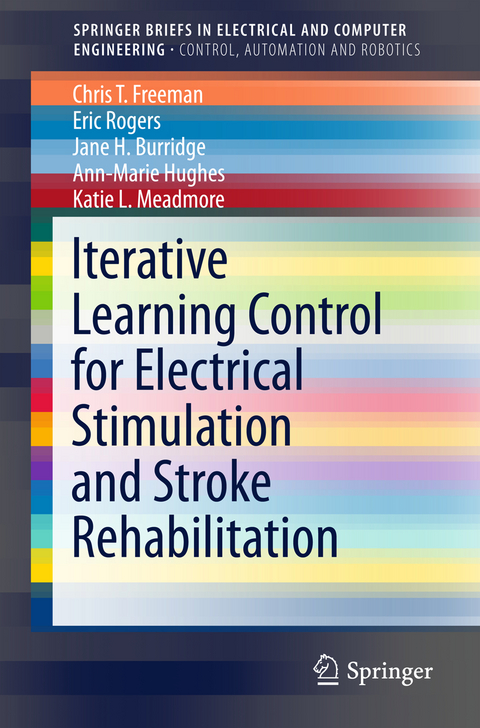
Iterative Learning Control for Electrical Stimulation and Stroke Rehabilitation
Springer London Ltd (Verlag)
978-1-4471-6725-9 (ISBN)
Regaining upper limb movement is an important step in a return to independence after stroke, but the prognosis for such recovery has remained poor. Rehabilitation robotics provides the opportunity for repetitive task-oriented movement practice reflecting the importance of such intense practice demonstrated by conventional therapeutic research and motor learning theory. Until now this technique has not allowed feedback from one practice repetition to influence the next, also implicated as an important factor in therapy. The authors demonstrate how ILC can be used to adjust external functional electrical stimulation of patients’ muscles while they are repeatedly performing a task in response to the known effects of stimulation in previous repetitions. As the motor nerves and muscles of the arm reaquire the ability to convert an intention to move into a motion of accurate trajectory, force and rapidity, initially intense external stimulation can now be scaled back progressively until the fullest possible independence of movement is achieved.
Dr Freeman and Professor Rogers are control engineers who have undertaken ground breaking research for iterative learning control from theory through to experimental benchmarking and comparative studies in the engineering domain. Professor Burridge and Dr Hughes are health professionals in the general area of rehabilitation and Dr Meadmore is a psychologist with interests in human movement and attention. Together they have worked to develop the idea of iLC in stroke rehabilitation from ‘blue skies’ ideas right through to clinical trials.
Iterative Learning Control: An Overview.- Technology Transfer to Stroke Rehabilitation.- ILC based Upper-Limb Rehabilitation— Planar Tasks.- Iterative Learning Control of the Unconstrained Upper Limb.- Goal-oriented Stroke Rehabilitation
| Reihe/Serie | SpringerBriefs in Control, Automation and Robotics | SpringerBriefs in Electrical and Computer Engineering |
|---|---|
| Zusatzinfo | 34 Illustrations, color; 35 Illustrations, black and white; VII, 124 p. 69 illus., 34 illus. in color. |
| Verlagsort | England |
| Sprache | englisch |
| Maße | 155 x 235 mm |
| Themenwelt | Medizin / Pharmazie ► Pflege |
| Medizin / Pharmazie ► Physiotherapie / Ergotherapie ► Orthopädie | |
| Medizin / Pharmazie ► Physiotherapie / Ergotherapie ► Rehabilitation | |
| Technik ► Elektrotechnik / Energietechnik | |
| Technik ► Medizintechnik | |
| Schlagworte | clinical evaluation • Healthcare Robotics • Learning Control • Medical Engineering • Stroke Rehabilitation |
| ISBN-10 | 1-4471-6725-2 / 1447167252 |
| ISBN-13 | 978-1-4471-6725-9 / 9781447167259 |
| Zustand | Neuware |
| Informationen gemäß Produktsicherheitsverordnung (GPSR) | |
| Haben Sie eine Frage zum Produkt? |
aus dem Bereich


